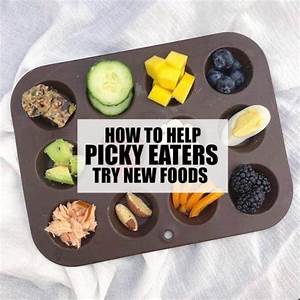Frances Meredith, MD

| Concussion is so much more common than we realize, a frequent occurrence in kids and teens, especially athletes, and increasing frequency in the elderly and unstable of gait. The fact that memory loss can be associated creates a scenario where concussions are simply not recalled, but can lead to long lasting symptoms and deterioration in quality of life. Most people do not seek care, and when they do, they are usually given out dated advice unless seen at a dedicated concussion center or provider. Sadly, most medical professionals, even in an urgent care or ER, are not trained in current cutting edge acute concussion care. Concussion centers have only come into existence since 2000, and active research has been lacking until recently. What is very clear is that with any symptoms suggestive of concussion (including loss of consciousness, dizziness, or feeling “detached”, vision changes, headache, nausea), physical activity must stop immediately. Theon field symptom that best predicts a longer recovery is dizziness followed by “fogginess”. Estimates according to Dr Michael Collins, head of the concussion center at UPMC University of Pittsburgh Medical Center, are that for every minute a player is back on the field, his/her recovery time is lengthened by7-8 days (1). The average recovery time for a mild concussion is 18 days, with15 minutes back on the field prolonging this to 44 days. What is not widely recognized is that immediate evaluation, a graded exercise and brain rehab plan, and supplement support can greatly speed recovery. EVALUATION An evaluation by a doctor familiar with concussion is essential after head trauma. Assuming the doctor feels you can be monitored at home, someone should stay with you and check on you for at least 24 hours to make sure symptoms are not worsening. This should be followed be evaluation by a true concussion expert as soon as possible. Evaluation should include an assessment of the mechanism of injury itself(video very helpful if available), vestibular ocular motor screening, balance and autonomic nervous system testing, and can include more sophisticated testing including a qEEG brain scan and Right Eye testing. An assessment of preconcussion risk factors which might delay recovery is important as well as a determination of the type of concussion. There are, according to current research, six types of concussion: cognitive fatigue, vestibular, ocular, migraine, anxiety, and neck based. These can overlap, and these different types are treated with different therapeutic modalities guided by testing. MANAGEMENT Mental rest and eye rest are essential in the early days after concussion. How long you’ll need to rest your brain and body will depend on the severity of your concussion and rapidity of resolution of symptoms. Your concussion specialist will help you to create a plan to allow the brain to heal. This will include lots of rest, optimizing hydration, and initially completely avoiding activities requiring mental concentration including homework, watching TV, playing video games, texting and using computers. These activities should be avoided for at least the first 48 hours after concussion, then gradually brought back incrementally as tolerated. Physical activity should also be limited in the first few days to mild activity such as walking that does not trigger symptoms. At that time exercise becomes essential in the healing process. Previously recommended complete bedrest, in darkness avoiding all stimuli, is no longer recommended. A structured, gradually progressing exercise plan should be created with your concussion specialist. Exercise programs after concussion often consist of 45-90 min daily of intense activity to increase blood flow to brain. Exercise is the best way to increase Brain Derived Neurotrophic Factor (BDNF), essential in neuroplasticity and brain healing. Optimal sleep is essential, with experts recommending at least 8 hours nightly with consistent bedtime and awakening times, taking only short naps when needed during the day in order to ensure optimal nighttime sleep. Your doctor may recommend, as screentime and mentally focused activities are reintroduced, a lightened work/school schedule, and spacing out screentime such as homework in short blocks. Your doctor will likely recommend other modalities to “rebab” the brain including a combination of exercises for vision and balance, Neurofeedback, autonomic nervous system retraining, and laser therapy. Often chiropractic care will be advised to reestablish alignment in the neck as misalignment in the neck gives the brain incorrect information about where you are in space. For pain relief discuss with your doctor whether Tylenol is right for you as NSAIDS such as Ibuprofen or Aspirin can increase risk of bleeding and actually prolong inflammation. As the brain is working hard to clear out damage, it is essential to abstain from other toxins to the brain such as alcohol, and lay off cigarettes if you smoke. “Energy Crisis” Optimal nutrient support at the onset of concussion may have an impact on speed of recovery. To understand why, it is key to understand what is happening in the brain in the minutes after concussion. The brain depends on glucose for energy. Following concussion, an “energetic crisis” occurs in the first 24 hours after injury where the brain can no longer easily metabolize glucose. Just when the brain needs more energy to heal, it has much less. This is followed by neuroinflammation at the site of injury that can further impair metabolism and energy production in the brain. Neuronal damage is also accompanied by vascular damage in which the pumps that keep nerves stable begin to fail. Then glutamate, a neurotransmitter toxic when in high amounts, can leak out and create inflammation and cell death. The goal is to decrease energetic demands on the brain and provide an alternate source of fuel other than glucose: ketones. Ketones serve as an alternate fuel source for the brain, typically created from fat stores while fasting. There is limited research in this area but animal studies are supportive and human studies are ongoing. The mechanisms of injury above guide treatment options that can be helpful in the hours to days after concussion. These can include: –Ketogenic diet: Ketones created in a low carbohydrate “ketogenic diet” support brain energy and can be supported by “exogenous ketones” in powder form. Studies in rodents show therapeutic benefit(4,5); studies in humans are lacking and ongoing but safety of ketogenic diet has been established. –Anti-inflammatory nutrients and anti-inflammatory diet: Nutrients such as fish oil, DHA, Vitamin D,NAC, Vit C, and curcumin have growing research to support their therapeutic benefit. –Phospholipid Support: Phospholipids, the main component of cell membranes, are made up of fats and phosphate. Studies suggest phospholipid support can help repair a damaged blood brain barrier and reduce tissue damage with traumatic brain injury (TBI)(8,9) –Hyperbaric oxygen treatment: Research suggests hyperbaric oxygen may be beneficial in both acute and chronic concussion or CTE (chronic traumatic encephalopathy) (6,7) however more research is needed. As the research grows, our approach to concussion will be fine tuned in the years to come. Please spread this information to family and friends as this knowledge can be the difference between return to play with speedy recovery and a lifetime of frustrating neurologic and psychologic symptoms that can be the result of poorly managed concussion. With expert management, top practitioners in the field firmly believe that complete healing is possible. Your Partner In Health, Frances T. Meredith, MD |




























